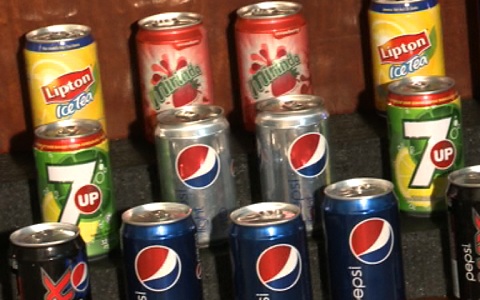After eighteen months of importing Asian-manufactured Pepsi Cola, the leading food manufacturer in PNG, Paradise Foods, will be manufacturing PNG Made Pepsi.
This was announced by Paradise Foods Marketing Coordinator, Lawrence Acanufa, in an interview last week.
The new factory to be built in Lae, Morobe province, costs over K32 million.
This will create over five hundred jobs for local Papua New Guineans and this factory will be bigger than the one in Port Moresby.
While it is important to promote PNG made products, imported goods can create a competitive market, and generate income for the country’s economy.
This means more tax to the government, a variety of goods for Papua New Guineans to choose from, and fast money for street vendors.
In a survey carried out last fortnight, 80% of the people interviewed told EMTV that PNG made products like Gogo Cola and Coco Cola are expensive to purchase.
They also said, imported drinks like Pepsi and Seven Up are thirst quenching, have quality in its taste, and are sold almost everywhere, making it easy for them to buy whenever they need to.
As a developing nation, the cost of doing business in PNG is very expensive. Over the years, we continue to import from fast growing Asian countries in the East and the developed nations in the North.
About five years ago, the market for assorted can drinks was monopolised by Coco Cola Amatil, with Pacific Industries as the smaller competitor.
Surprisingly, this changed after the national government reduced the tariff for can drinks.
Since the importing of these can drinks, both companies are now fighting to remain afloat in the market.
This is evident in the drop in their prices, and according to representatives from these two local manufactures; there has been a dramatic decrease in the sale of their drinks.
In an interview last week, Paradise Foods, who is the sole distributor of these imported Asian Manufactured drinks in PNG, told Emtv that, it’s all about giving their customers want they want.
When asked why import drinks? They said, both CCA and PI were charging over K3 per can, this prompted them to import drinks and sell it at a price ordinary Papua New Guineans can afford.
In a recent interview with PI’s National Marketing Manager, Ashlon Chue, it was revealed that the tariff charged by the government on imported drinks is only 12.5 percent.
Now according to the demand and supply curve, a rule in the business world which states that if the demand for a particular good increases, its price is likely to increase as well.
However, that is not the case for these imported drinks; they are still sold between K2 and K2.50 in almost all provinces nationwide.
Due to the high demand of these imports, it is likely that Paradise Foods will be increasing the quantity of its imports.
Though these goods are imported, they created business opportunities for most people in the city and according to Paradise Foods, the profits remain in PNG.
https://youtube.com/watch?v=nVkb5C3UGLA%3Ffeature%3Doembed%26wmode%3Dopaque%26showinfo%3D0%26showsearch%3D0%26rel%3D0
previous post


